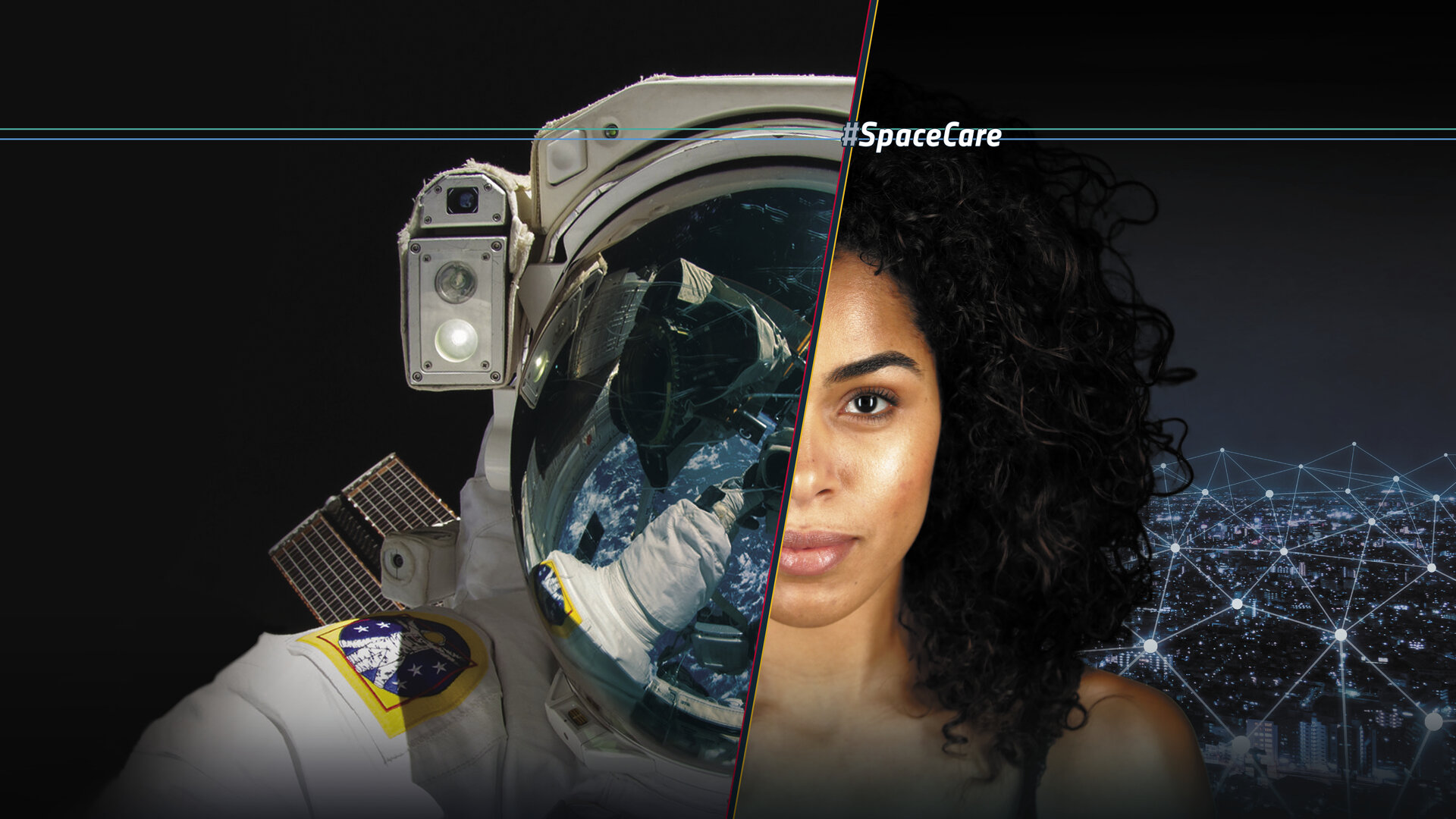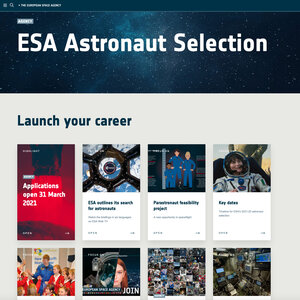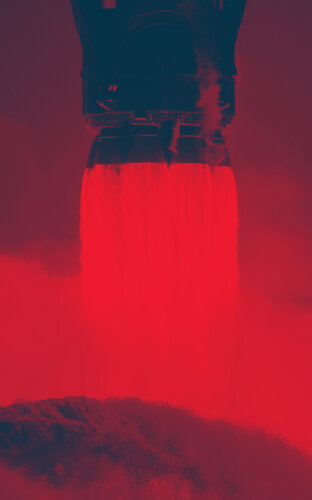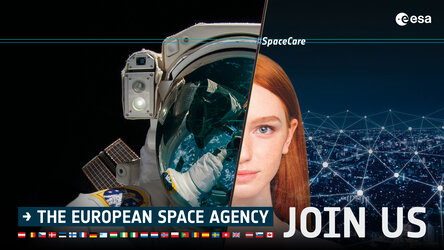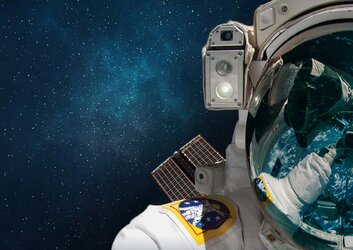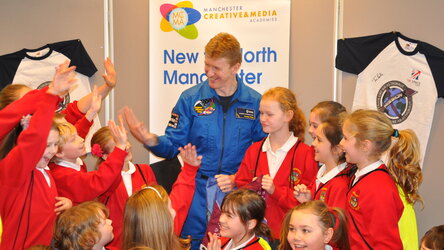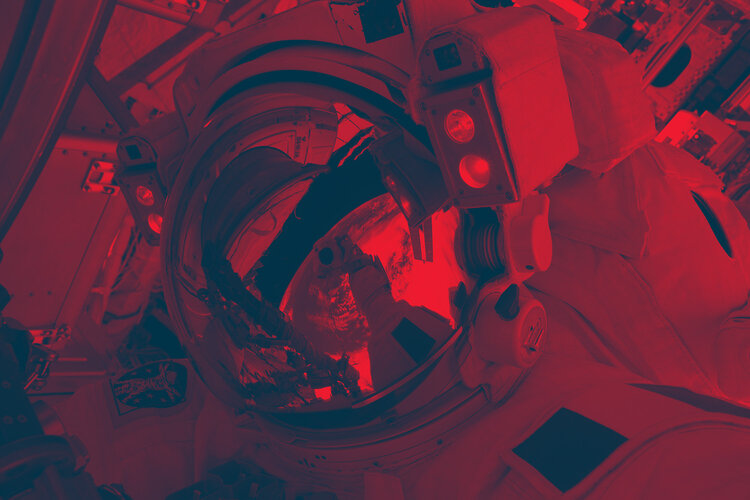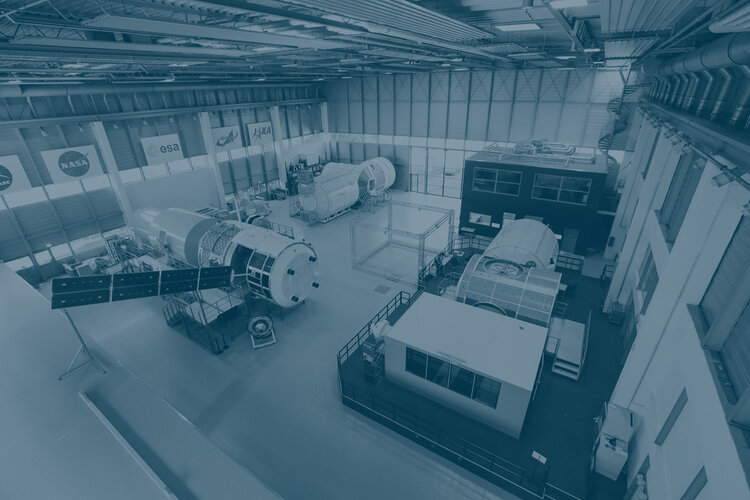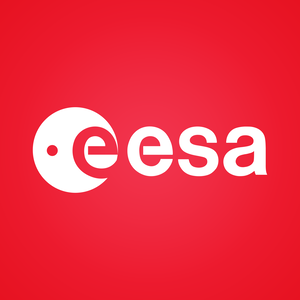Calling all future astronauts!
New application deadline: due to Lithuania's new status as an ESA Associated Member, the application period has been extended by three weeks. Applications for ESA's Astronaut and Astronaut (with a physical disability) vacancies now close 18 June 2021.
Applications are open for ESA’s first astronaut selection in over a decade, and all qualified candidates are encouraged to put themselves forward.
Vacancy notices “Astronaut” and “Astronaut (with a physical disability)” have been posted to jobs.esa.int. Applications must be submitted via this site before 28 May 2021 to be considered for selection and important information for candidates is available in the newly released Astronaut Applicant Handbook.
Apply, apply, apply

Becoming an ESA astronaut is no easy feat, but the only guaranteed way for those who meet the minimum requirements to miss out on selection is to not submit an application. This message has been reiterated by the ESA astronaut class of 2009, including the soon-to-fly Thomas Pesquet who said not applying in ESA’s last selection round would have been “the biggest mistake of my life”.
“The most selective step is whether or not you are going to apply,” Thomas says. “There’s maybe one in a thousand people who are going to be picked up, but there is one in a million who will apply. So please, please, please – apply, apply, apply.”
Thomas is scheduled to launch to the International Space Station for his second mission, known as Alpha, on 22 April 2021. The first mission of ESA astronaut Matthias Maurer is scheduled for October, and ESA astronaut Samantha Cristoforetti expected to launch on her second mission in spring 2022.
A new decade of exploration

In a recent ESA Explores podcast interview, ESA director of human and robotic exploration David Parker says the development of new human-rated spacecraft present even more opportunities for European astronauts to travel to the International Space Station and beyond, as the Agency enters a new decade of space exploration.
“Not only will we continue to live and work in low Earth orbit on board the Space Station for perhaps another 10 years, we also have concrete opportunities to fly astronauts to new destinations,” he says.
“We need to keep our eyes on our aim of living and working on the lunar Gateway, then the Moon, and who knows – maybe even one day – the surface of Mars. This new group of recruits will help keep our astronaut corps at full strength, ready for an exciting future.”
Breaking down barriers to space
One new aspect of this astronaut selection campaign is the introduction of the ‘Parastronaut Fly! Feasibility Project’. To help increase accessibility of spaceflight for all qualified Europeans, ESA is seeking candidate(s) living with a specific physical disability to help assess the technologies and adaptations required to one day send an astronaut with a physical disability on a professional space mission.
“This hasn’t been attempted or considered before, but for me it is really important because European astronauts represent the best of Europe. There could be an excellent scientist or engineer who just happens to live with a physical disability.”

“We did not evolve to go to space, so when it comes to space travel, we are all disabled,” ESA astronaut Samantha Cristoforetti adds. "What brings us from being disabled to go to space to being able to go to space is just technology. This is a feasibility study and we're going to look into what exactly is needed, how much it will cost – but that's the goal."
For more on the 2021-22 ESA astronaut selection and how to apply visit website esa.int/YourWayToSpace.















 Germany
Germany
 Austria
Austria
 Belgium
Belgium
 Denmark
Denmark
 Spain
Spain
 Estonia
Estonia
 Finland
Finland
 France
France
 Greece
Greece
 Hungary
Hungary
 Ireland
Ireland
 Italy
Italy
 Luxembourg
Luxembourg
 Norway
Norway
 The Netherlands
The Netherlands
 Poland
Poland
 Portugal
Portugal
 Czechia
Czechia
 Romania
Romania
 United Kingdom
United Kingdom
 Slovenia
Slovenia
 Sweden
Sweden
 Switzerland
Switzerland


























